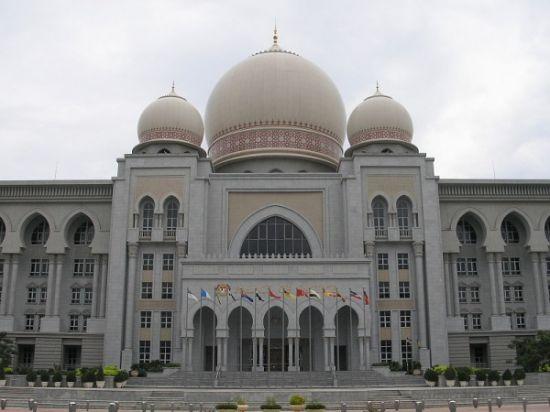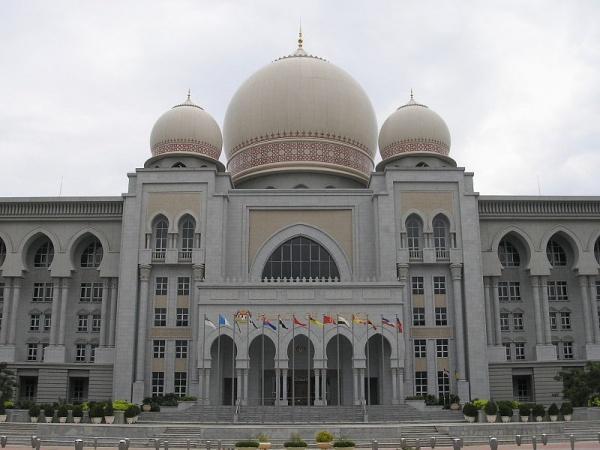For seven long years, Indira Gandhi has fought for judicial remedy concerning the unilateral conversion of her three children. After many ups and downs, the case went into its final round before the Federal Court on 14th and 15th November 2016.
What has happened so far?
Before discussing the events on 14th and 15th November, a chronological summary of the events so far:
In 1993, Indira Gandhi and Muhammad Riduan Abdullah (at that time named K. Pathmanathan), who were both Hindu, married under the Law Reform (Marriage and Divorce) Act 1976. In March 2009, Ipoh-based K. Pathmanathan converted to Islam and shortly after, he unilaterally converted the three children of their marriage to Islam. This happened without the children’s and mother’s knowledge and approval. He left the house with the youngest daughter Prasanna Diksa and Indira Gandhi has not seen Prasanna Diksa ever since. In September 2009, Muhammad Riduan was granted permanent custody of all children. In March 2010, the Ipoh High Court granted permanent custody to Indira. Three years later, in July 2013, the same court also annulled the conversion and declared the certificates null and void and in May 2014 ruled that “all matters relating to children of a civil marriage must be resolved under civil law in the High Court.”
 Muhammad Riduan appealed to the Court of Appeal and the Court of Appeal ruled that the conversion to Islam of the three children falls within the jurisdiction of Syariah Courts, thus setting aside the decision of the Ipoh High Court. In April 2016, the Federal Court ordered the IGP to arrest Muhammad Riduan as he failed to return the youngest child to their mother.
Muhammad Riduan appealed to the Court of Appeal and the Court of Appeal ruled that the conversion to Islam of the three children falls within the jurisdiction of Syariah Courts, thus setting aside the decision of the Ipoh High Court. In April 2016, the Federal Court ordered the IGP to arrest Muhammad Riduan as he failed to return the youngest child to their mother.
On 14th and 15th November 2016, the Federal Court heard the appeal of Indira Gandhi against the December 2015 judgement.
The hearing on 14th November was quickly postponed to the following day, as the judges requested the presence of Muhammad Riduan. On 15th November, the lawyer of Muhammad Riduan reported that his client was unable to come to Court. Indira’s lawyers declared that they were ready to proceed and the Federal Court agreed.
Question 1: Whether the High Court has the exclusive jurisdiction pursuant to sections 23, 24 and 25 and the Schedule of the Courts of Judicature Act 1964 (read together with order 53 of the Rules of Court 2012) and/or its inherent jurisdiction to review the actions of the Registrar of Muallafs or his delegate acting as public authorities in exercising statutory powers vested by the Administration of the Religion of Islam (Perak) Enactment 2004.
K. Shanmuga submitted that the High Court of Malaya and not the Syariah Court has exclusive jurisdiction to review the actions of the Registrar of Muallaf acting as a public authority in exercising statutory powers vested by the Perak Enactment 2004 (the subject matter). The exclusivity of judicial review powers over public authorities is established in Article 121 of the Federal Constitution. The Syariah Court has no jurisdiction over the subject matter, thus Article 121 (1A) is applicable. Article 121 (1A) states that the High Courts of Malaya and Sabah and Sawarak have no jurisdiction of any matter within the jurisdiction of the Syariah Courts; Article 121(1A) was introduced to prevent conflicting jurisdiction between Syariah Courts and Civil Courts.
The matters that fall within the jurisdiction of the Syariah Courts can be found in Item 1 of the 9th Schedule of the Federal Constitution. Syariah courts are only entitled to adjudicate upon a subject matter if the subject matter expressly falls within its jurisdiction and if all parties involved in a case are Muslim.
The subject matter is not within the jurisdiction of the Syariah courts, as the issue at stake deals with administrative law and is not of religious a nature. Furthermore, the plaintiff practices Hinduism and thus the Syariah Court of Perak has no jurisdiction over Indira Gandhi. Indira Gandhi can only seek judicial remedy in the Civil Courts. It would result in injustice for her and other non-Muslims, if the Syariah Court has jurisdiction over this subject matter.
Shan further submitted that the Perak Enactment of 2004 neither entitles the Syariah Court to determine whether a person was validly converted into Islam nor whether the Registrar of Muallafs validly issued the Certificates for the children.
As such, Shan submitted that the answer to the first question has to be answered in the affirmative, i.e. the High Court has exclusive jurisdiction to review the actions of the Registrar of Muallafs in exercising statutory powers vested by the Perak Enactment 2004.
Question 2: Whether a child of a marriage registered under the Law Reform (Marriage and Divorce) Act 1976 (“a civil marriage”) who has not attained the age of eighteen years must comply with both sections 96(1) and 106(b) of the Administration of the Religion of Islam (Perak) Enactment 2004 (or similar provisions in State laws throughout the country) before the Registrar of Muallafs or his delegate may register the conversion of Islam of that child.
The second question was addressed by Aston Paiva. He dealt with the prerequisites that must be met for a conversion to be valid, i.e. only if all criteria of sections 96 and 106 of the Perak Enactment of 2004 are met, the conversion to Islam is successful. In Section 96, it is stated that the child must recite the declaration of faith of his/her own free will while being aware of its meaning and the consequences that are associated with the conversion. In Section 106, it is formalized that the conversion of under-aged children requires written consent of the parent or guardian before the conversion can take place.
Aston submitted that the conditions of section 96 of the Perak Enactment 2004 were not fulfilled in Muhammad Riduan’s conversion of his children. Furthermore, Indira Gandhi never issued a written consent.
Aston further submitted that section 101(2) of the Perak Enactment 2004 has to be considered as well. Section 101(2) of the Enactment states that a Certificate of Conversion is sufficient proof of a successful conversion into Islam. The Registrar of Muallaf made an error of law when registering the conversion of Muhammad Riduan’s children as he failed to take into account Section 100 of the Perak Enactment 2004. Section 100 requires the converting person to present himself/herself to the Registrar of Muallaf to register the conversion. The Registrar of Muallafs accepted the application of Muhammad Riduan without the children being present.
Aston concluded that the original decision of the Ipoh High Court, which rendered the certificates of conversion null and void, should be upheld.
Question 3: Whether the mother and the father (when both are still surviving) of a child of a civil marriage must consent before a certificate of conversion to Islam can be issued in respect of that child.
The third and last question was addressed by Fahri Azzat, who submitted that both the mother and the father of the child of a civil marriage must consent to the conversion. The consent of only one parent is not enough for the conversion to be valid. Thus, only if both parents approve, the certificate of conversion to Islam can be issued for the respective child.
Fahri Azzat’s argument is based on a purposive reading of section 106(b) of the Perak Enactment when interpreted in the context of Articles 12(4), 5,8,11 and 160 of the Federal Constitution as well as Section 5 of the Guardianship of Infants Act 1961.
Article 12(4) determines that “the religion of a person under the age of eighteen years shall be decided by his parent or guardian”, whereas Section 5 of the Guardianship of Infants Act 1961 determines that mother and father have equal guardianship rights for their children.
Fahri submitted that unilateral conversion of the children by one parent without informing the other parent conflicts with the right to equality enshrined in Article 8 of the Federal Constitution as it discriminates against the other parent of the child.
Both Article 8 of the Federal Constitution and Section 5 of the Guardianship of Infants Act 1961 prohibit discrimination on the basis of gender. Therefore, a mother cannot be denied her role in determining something so fundamental such as the religion of her child under Article 12(4) of the Federal Constitution.
In addition, Section 106(b) of the Perak Enactment 2004 demands that a child’s “parent or guardian consents in writing to his conversion”. Fahri submitted that the word “or” must be construed to mean “and” to comply with the principle of non-discrimination. Moreover, the word “parent” should be read as “parents”. This interpretation is the only possible stance when reading Article 160 together with the 11th schedule of the Federal Constitution, which provides that “words in the singular include the plural” and vice versa.
Fahri also addressed the well-being of the child, which should have utmost priority in custody-related matters. Muhammad Riduan has hindered contact between Indira Gandhi and her daughter Prasanna Diksa for more than seven years. The equal importance of both mother and father in the upbringing of a child is also contained in international human rights norms, namely the Convention on the Rights of the Child and the Convention on the Elimination of All Forms of Discrimination against Women, that Malaysia has agreed to comply with.
The hearing will continue on 30th November 2016 with the submissions of Muhammad Riduan’s counsel. Come to the Federal Court to show Indira Gandhi your support!

